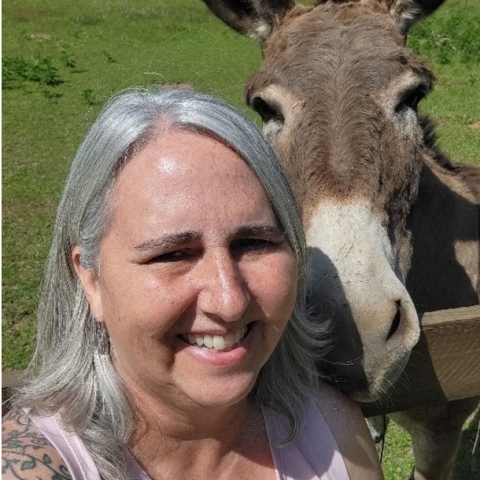
About Beth Stys
Beth is the Southeast Regional Climate Adaptation Ecologist, working to coordinate and facilitate the integration and implementation of climate adaptation across programs within the Southeast Region. She actively participates in climate change climate change
Climate change includes both global warming driven by human-induced emissions of greenhouse gases and the resulting large-scale shifts in weather patterns. Though there have been previous periods of climatic change, since the mid-20th century humans have had an unprecedented impact on Earth's climate system and caused change on a global scale.
Learn more about climate change activities within DOI, FWS, and with partners at the National, Regional and local levels. Prior to joining FWS in 2021, Beth spent 30 years working for the Florida Fish and Wildlife Conservation Commission (FWC), Fish and Wildlife Research Institute. She led the terrestrial and freshwater section of the Center for Spatial Analyses. She was the lead for FWC’s Landscape Conservation Strategic Initiative and the Climate Change team. Her work focused on spatial analyses for landscape level, statewide conservation planning, imperiled species protection, terrestrial and freshwater aquatic conservation area conservation area
A conservation area or wildlife management area is a type of national wildlife refuge that consists primarily or entirely of conservation easements on private lands. These conservation easements support private landowner efforts to protect important habitat for fish and wildlife. There are 15 conservation areas and nine wildlife management areas in the National Wildlife Refuge System.
Learn more about conservation area identification and prioritization, species habitat modeling, land cover mapping, and climate change. She was involved with the FWC’s climate change work since 2008. In her role with FWC, Beth served as the co-Science Coordinator for the Peninsular Florida Landscape Conservation Cooperative from 2014 – 2017 and continued working collaboratively with the FWS/Science Applications on landscape conservation. She was also involved with the Gulf Coastal Plains and Ozarks and South Atlantic LCCs as a state representative on the Steering Committees. She is an instructor for several FWS – National Conservation Training Center climate change courses.
Beth holds a B.S. degree in Wildlife and Fisheries Sciences from Texas A&M University and a M.S. degree in Wildlife and Fisheries Ecology from Mississippi State University.